God of Weapons developed by Hanoi-based dev Archmage Labs and published by Ultimate Games is an autoshooter set in a D&D style dungeon. Ostensibly you go up floors of a tower tackling waves of enemies as you go, though one murky dungeon is indistinguishable from another if we’re honest. It originally came out on PC a couple of years ago, having done well enough to be deemed worthy of a release on consoles.
Mechanically it will be familiar to anyone who’s played Brotato or Vampire Survivors. Heck, if you’ve not played either, get to it pronto. In fact, stop reading this review and go play them instead. Assuming you’ve not played either, you start on the first level and see off enemies for experience points and money. Upon finishing a round, you’ll first expand your rather limited inventory space.
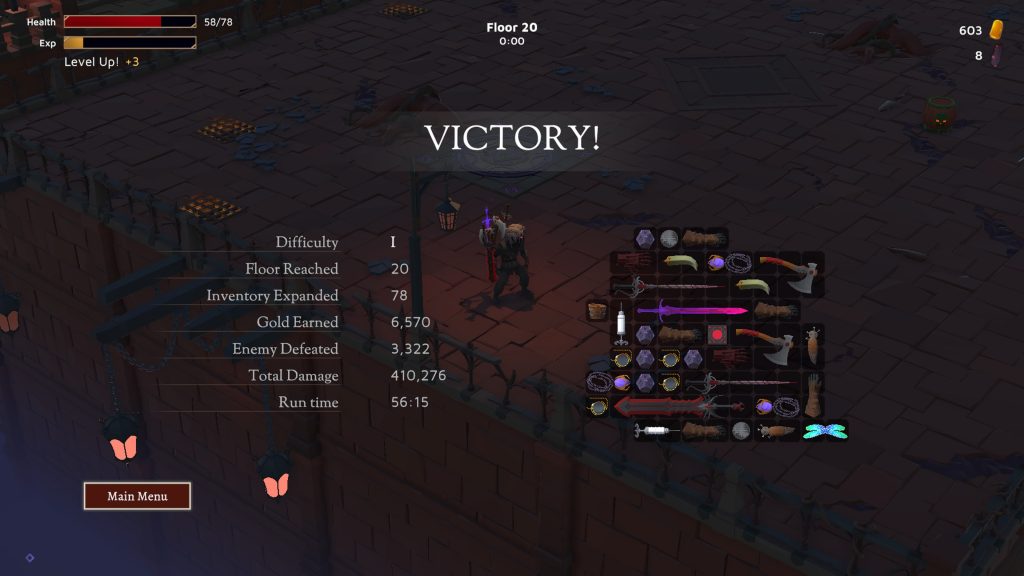
It is a bit like the original PS1 Resident Evil games in that regard, or the first couple of Diablo games. We can’t speak personally regards similar systems any of the later games as we’ve not played them, but you get the idea. Setting up your inventory so that adjacent items get buffs is as much part of the game as your progress in the arena is.
Intriguingly, you can only buy weapons that will fit into your inventory, though you can tap ![]() on an item to hold it over until you can fit it in. The economy is such that you’ll rarely run out of cash unless you are liberally rerolling the available items.
on an item to hold it over until you can fit it in. The economy is such that you’ll rarely run out of cash unless you are liberally rerolling the available items.
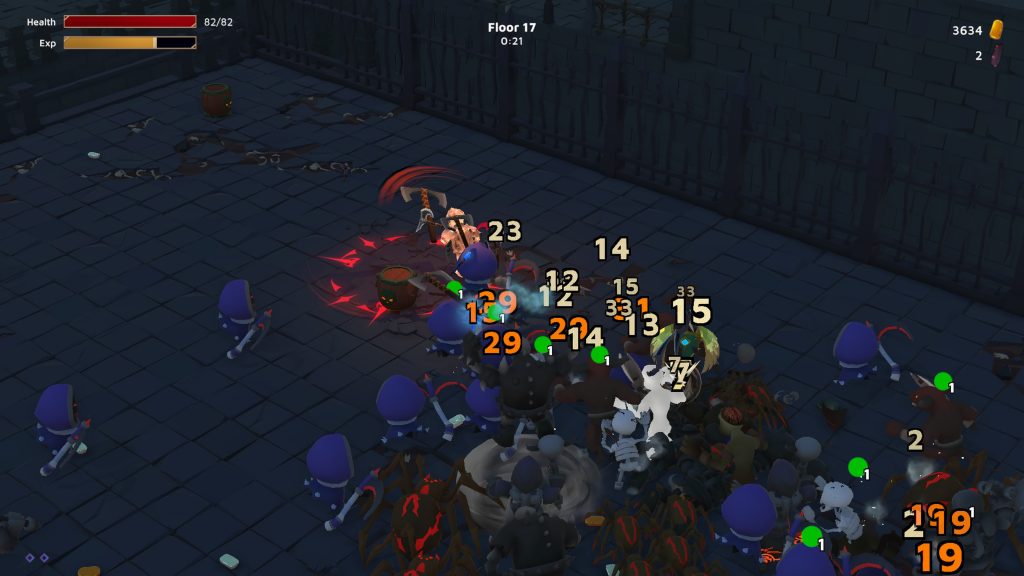
Weapons can be upgraded either via a toolkit or by combining them with identical items of the same level. For example, three level one items combine to make one level two. And so on until a cap of level four. This replicates the item rarity seen in the likes of World of Warcraft to some extent with a base level item being white, second being blue, third being purple, culminating in with red at level four. As you proceed, you’ll also unlock yellow tier items, these are called unique in the context of GoW.
Just like in Brotato, you have item synergies, for example you’ll get a set bonus if you match up sharp items together, something like critical hit chance or attack speed. These generally complement the classes who are predisposed to those weapon sets by their initial cookie cutter loadout.
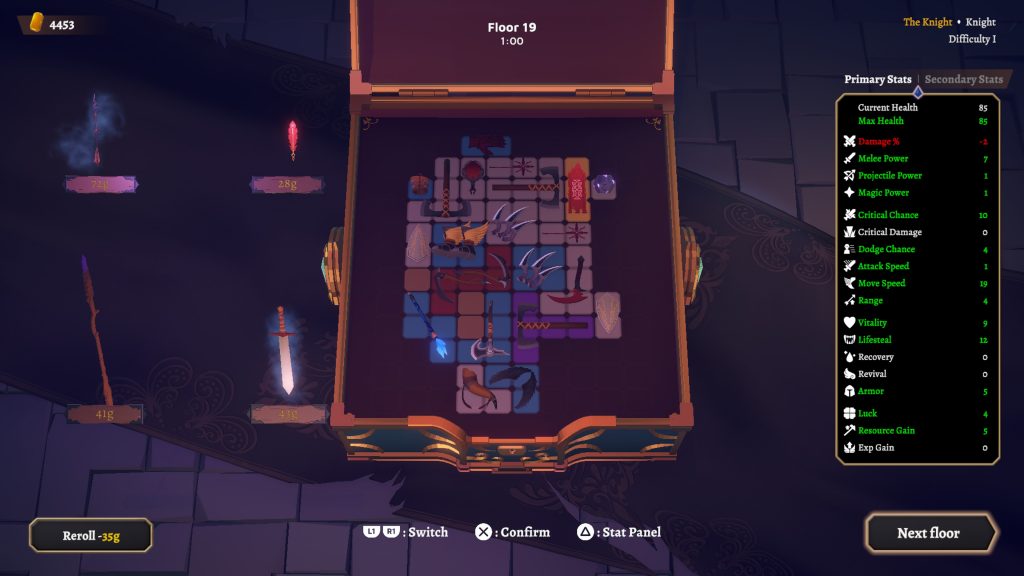
The classes will be pretty familiar to anyone who’s played an RPG. There’s the knight aka the warrior, the rogue aka stabmaster and the magician among others. Each class has three subsets, in the case of the knight you have the standard knight, the weapon master and eldritch knight. Sadly, the last one doesn’t have anything to do with the lead singer of The Sisters Of Mercy.
Trophy unlocks might seem obvious but are sometimes gated in-game even if you fulfil the criteria, so while you might assume a glitch, it’s more likely that you simply haven’t completed the prerequisites to even have the trophy available. Though they have still proved susceptible to glitching out, specifically one where you have to lifesteal a thousand times.
Thankfully it eventually registered for us, though we feared it was going to mock us like the Hoarder trophy in Pac-Man Museum+ where it hasn’t registered properly despite our having far exceeded the requirements.
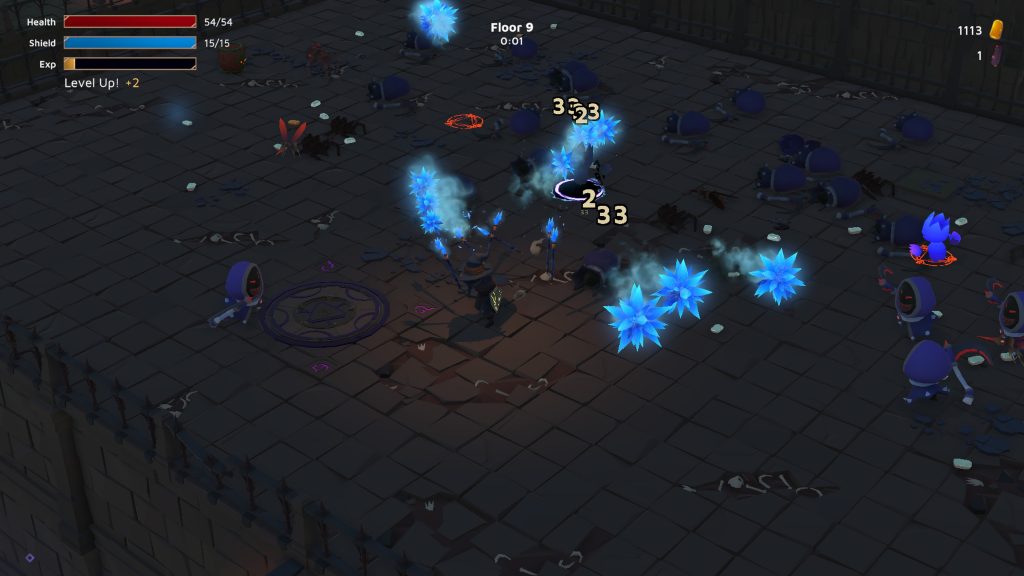
Fulfilling an objective often unlocks another class for play or an item for use in subsequent playthroughs, so you’ve every incentive to play all the classes and push for their main attributes. Armour for a warrior for example, or magic power for a shaman.
The mark of a good game for this reviewer is the ability for it to make us play instead of working and God of Weapons sure has that aspect nailed. It’s not quite Balatro or Vamp Survivors in terms of lost productivity admittedly, but over twenty hours in the space of less than a week is a good indicator of where we’re at. Not all consuming to the extent it becomes a problem, but certainly enough that it’s held up our writing this review somewhat.
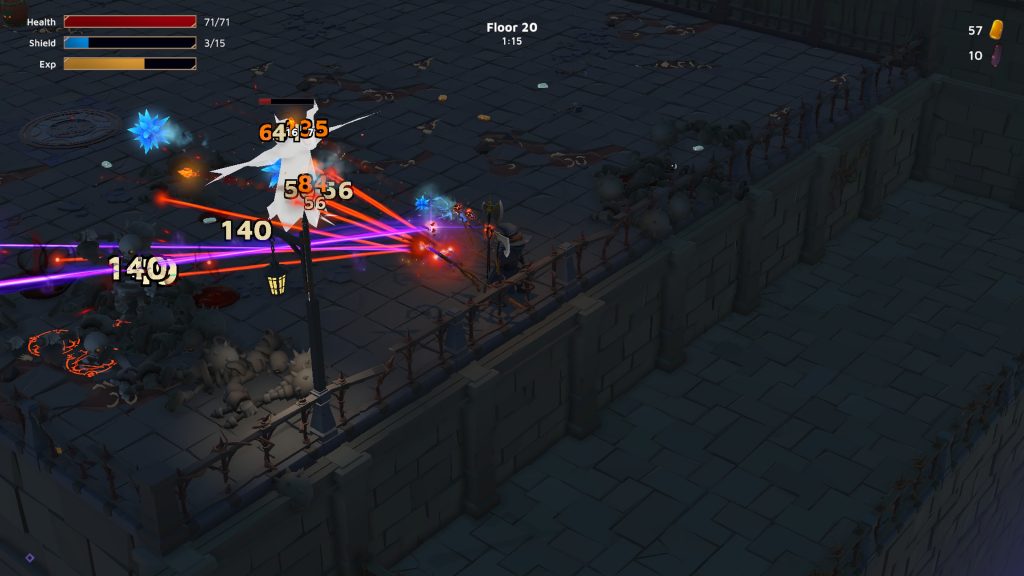
When a run really comes into its own, it’s glorious. You can either be kiting a bunch of enemies around the stage as a rogue or have beams of arcane energy cleaving them down as none get near you. It’s not quite Vampire Survivors levels of lunacy but it is still fun. The sentinel class, in particular, is great for standing in one spot and just destroying anything before it gets near you.
If we had any wish, it would be to continue a run after level twenty, especially when you’re on the cusp of unlocking another attribute. Also, it’d be nice to be able to check your progress on the challenges mid-run, but you’re not able to do so. At least you can stop runs and reconvene them later, which is no bad thing. A run can take around forty minutes, so to have the ability to break them down is welcome.
Some of the latter classes seem a bit underpowered to begin with, but the associated challenges are a good hint as to what you probably have to concentrate on to get the most out of them.
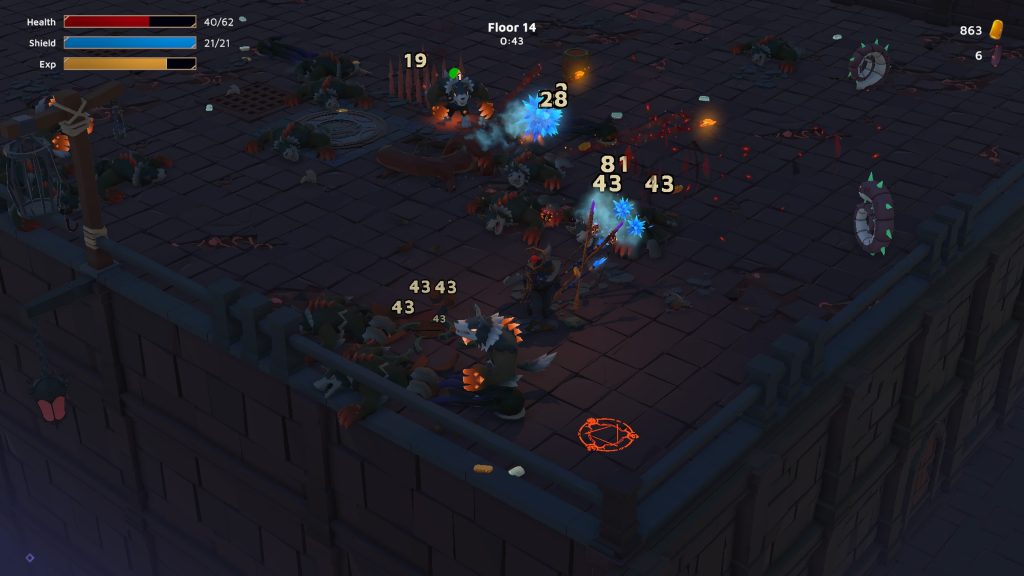
Downsides, the music is very samey as to be generic, we thought it was context sensitive at first but when it comes to a crescendo that you might think denotes the end of a level, you’ll discover you’ve still got a while left.
In conclusion, God of Weapons is very good. It’s not quite up there with the paragons of the autoshooter genre, but it isn’t far off. The inventory management is very well done and to progress you’ll have to master tweaking your space to fit your loadout. The trophies might seem glitchy, but more likely you haven’t yet fulfilled the criteria to proceed. We look forward to playing on the higher difficulties for a while yet.
+ Inventory management is a well done mechanism for upgrades and synergies
+ Ingame challenges drive progress well
- Trophies can be a bit glitchy with progress freezing
- Music is pretty generic

